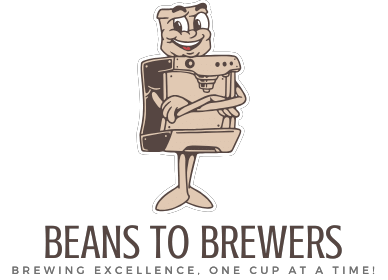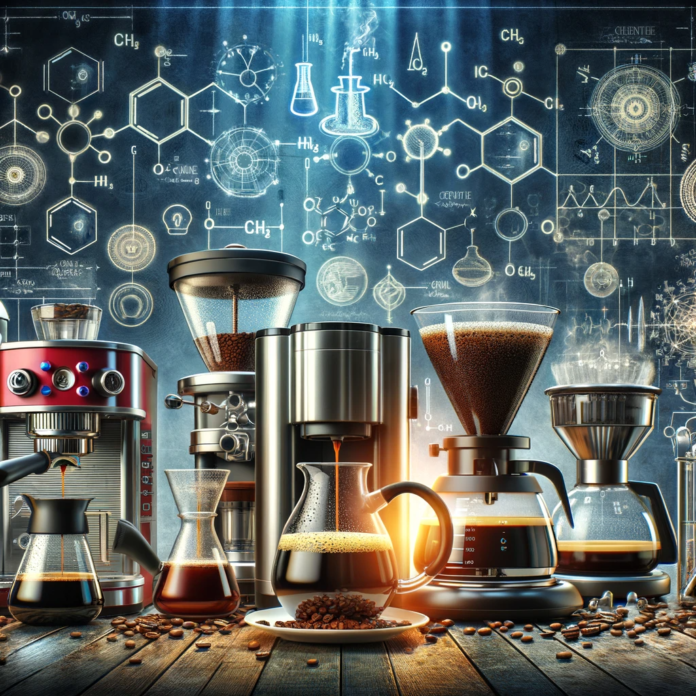The Science Behind Brewing the Perfect Cup: How Coffee Makers Impact Flavor
For coffee enthusiasts, the perfect cup of joe is a daily quest. Whether it’s a bold espresso to kickstart the morning or a smooth pour-over to savor in the afternoon, the flavor and aroma play a crucial role in the overall coffee experience. But have you ever wondered how the brewing method and coffee maker you use affect the taste of your favorite beverage? In this article, we’ll dive into the science behind brewing the perfect cup of coffee and explore how different coffee makers can impact flavor.
Firstly, let’s examine the essential elements that contribute to the flavor of coffee. Coffee beans themselves contain various compounds such as acids, sugars, and oils that are soluble in hot water. When coffee is brewed, these compounds dissolve and interact with each other, resulting in the distinctive taste we love. The solubility of these compounds is influenced by factors like water temperature, extraction time, and brewing method, all of which tend to vary depending on the coffee maker used.
Drip coffee makers, commonly found in households, are known for their convenience and simplicity. These machines work by pouring hot water over ground coffee beans held in a filter, allowing it to drip down into a carafe. The water temperature in most drip coffee makers ranges from 195 to 205 degrees Fahrenheit, which is considered ideal for bringing out the flavors from the coffee beans.
However, the main drawback of drip coffee makers is the relatively short extraction time. The water quickly passes through the coffee grounds, leading to a rapid extraction rate. While this may result in a decent cup of coffee, the flavors might not be fully developed and can sometimes lean towards bitterness or acidity. Additionally, the use of paper filters in some drip coffee makers can absorb oils and some desirable compounds, potentially altering the coffee’s taste.
On the other end of the spectrum, we have espresso machines. Espresso is a concentrated form of coffee made by forcing hot water at high pressure through finely ground coffee. This process extracts a higher concentration of compounds in a shorter time, producing a bolder and more robust flavor compared to drip coffee. Espresso machines also allow for a greater range of control over variables like water temperature and extraction time, which can significantly impact the taste of the final product.
The intense pressure applied during espresso extraction emulsifies oils and other compounds, creating a rich crema and dense body. These qualities contribute to the full-bodied and complex flavor profile associated with espressos. The flavor of espresso is often described as more intense and concentrated due to the concentrated brewing process and the finer grind size of the coffee beans.
Lastly, manual brewing methods such as pour-over, French press, or AeroPress offer the ultimate control over the brewing process. Every aspect, from water temperature to extraction time, can be customized to suit personal preferences. Pour-over methods, for example, involve pouring hot water over coffee grounds in a slow and controlled manner. This allows for a longer extraction time, resulting in a more balanced and nuanced flavor profile.
In contrast, French press brewing involves steeping coffee grounds in water, then using a plunger to separate the liquid from the grounds. This method produces a full-bodied and rich cup of coffee due to the extended contact time between the water and coffee. The flavor is more robust, with some sediment and oils enhancing the overall taste experience.
Ultimately, the choice of coffee maker plays a vital role in the flavor of your cup of coffee. Each brewing method brings forth different aspects of the coffee beans, leading to variations in taste, body, and aroma. Understanding the science behind brewing allows coffee enthusiasts to experiment and find the perfect brewing method that caters to their palate preferences.
Whether you opt for the convenience of a drip coffee maker, the boldness of an espresso machine, or the meticulousness of manual brewing methods, the key is to experiment, adjust brewing variables, and explore the coffee’s potential. So, go ahead and brew your perfect cup, understanding that the choice of coffee maker is an essential factor in unlocking the optimal flavor experience.


